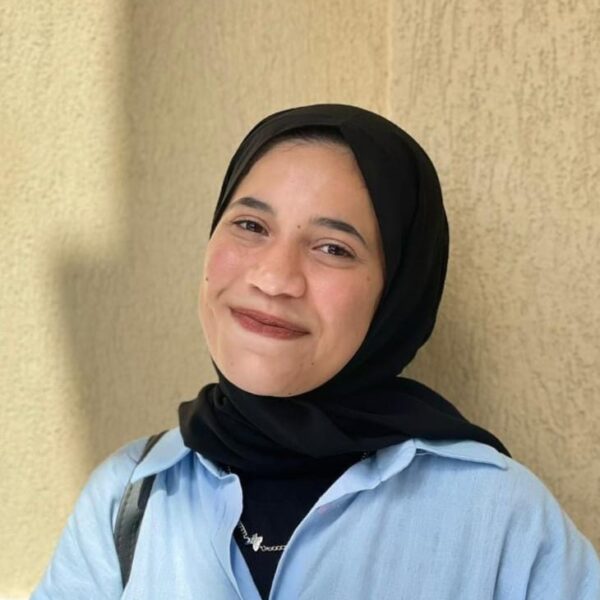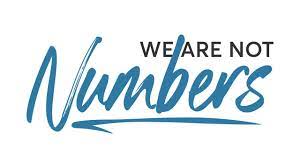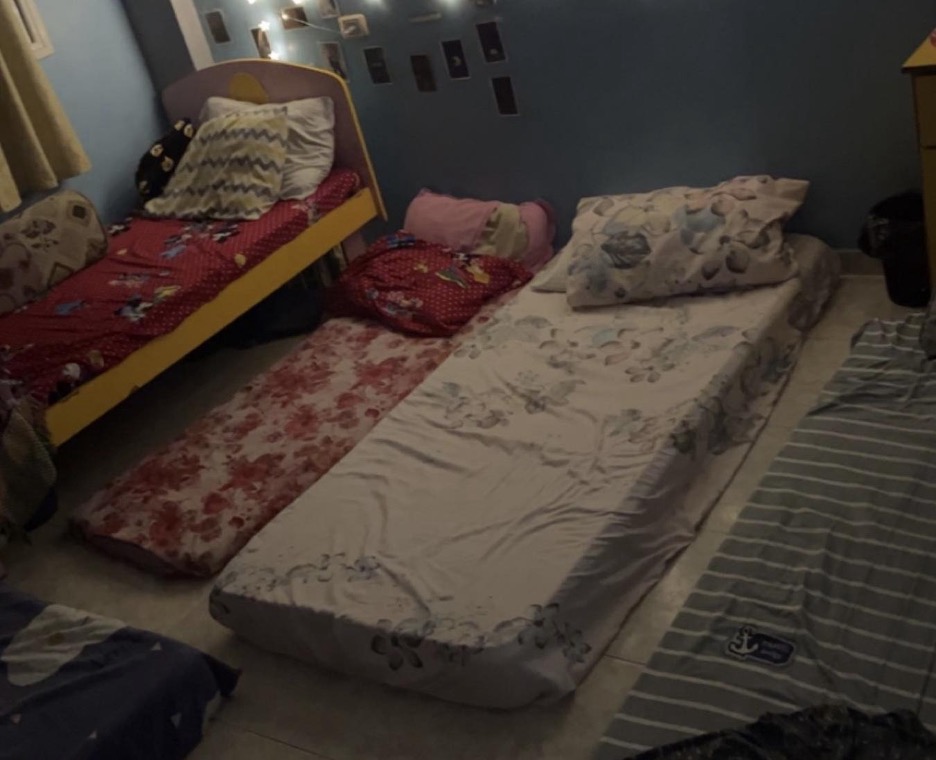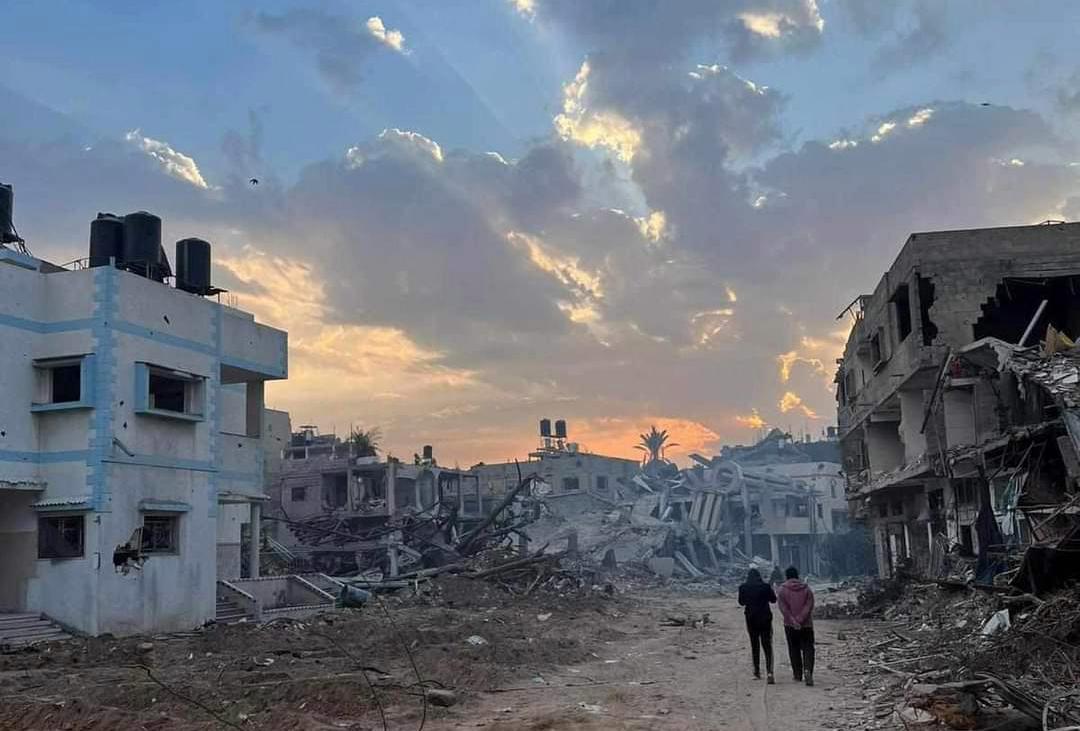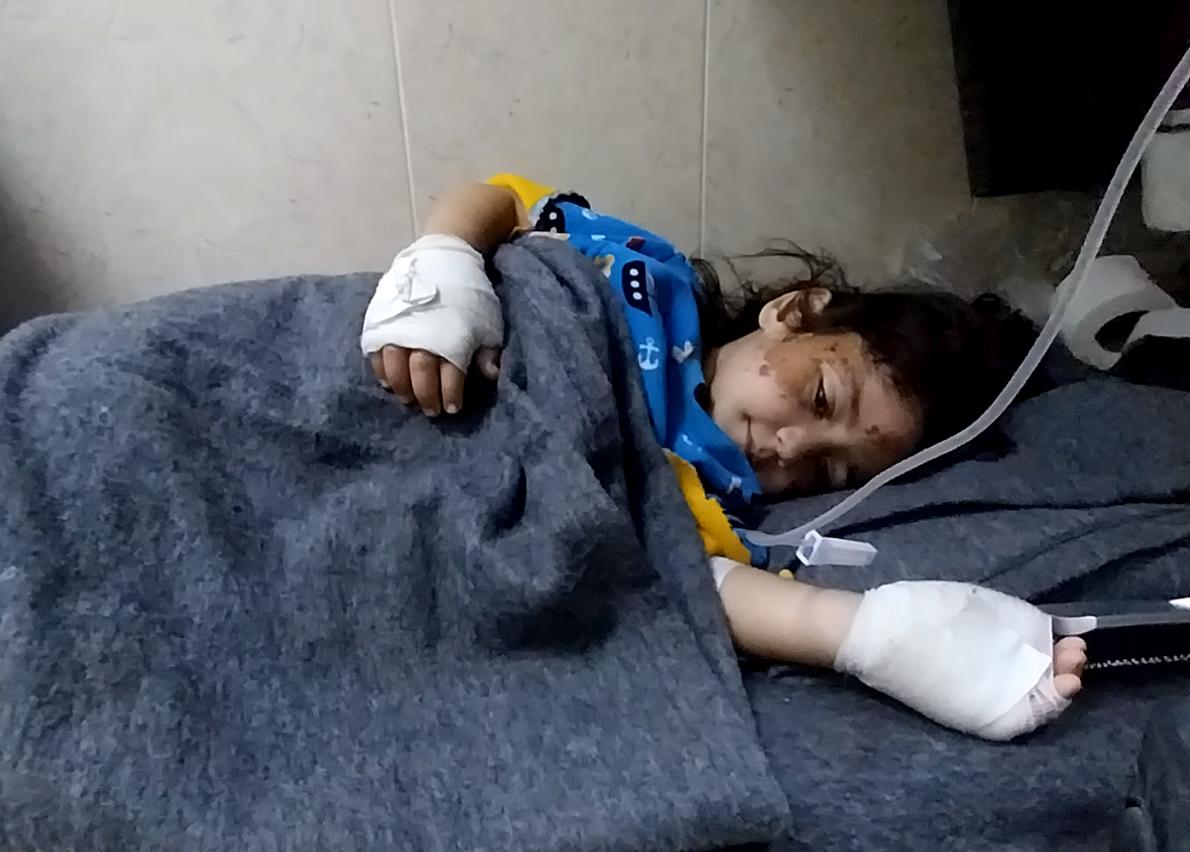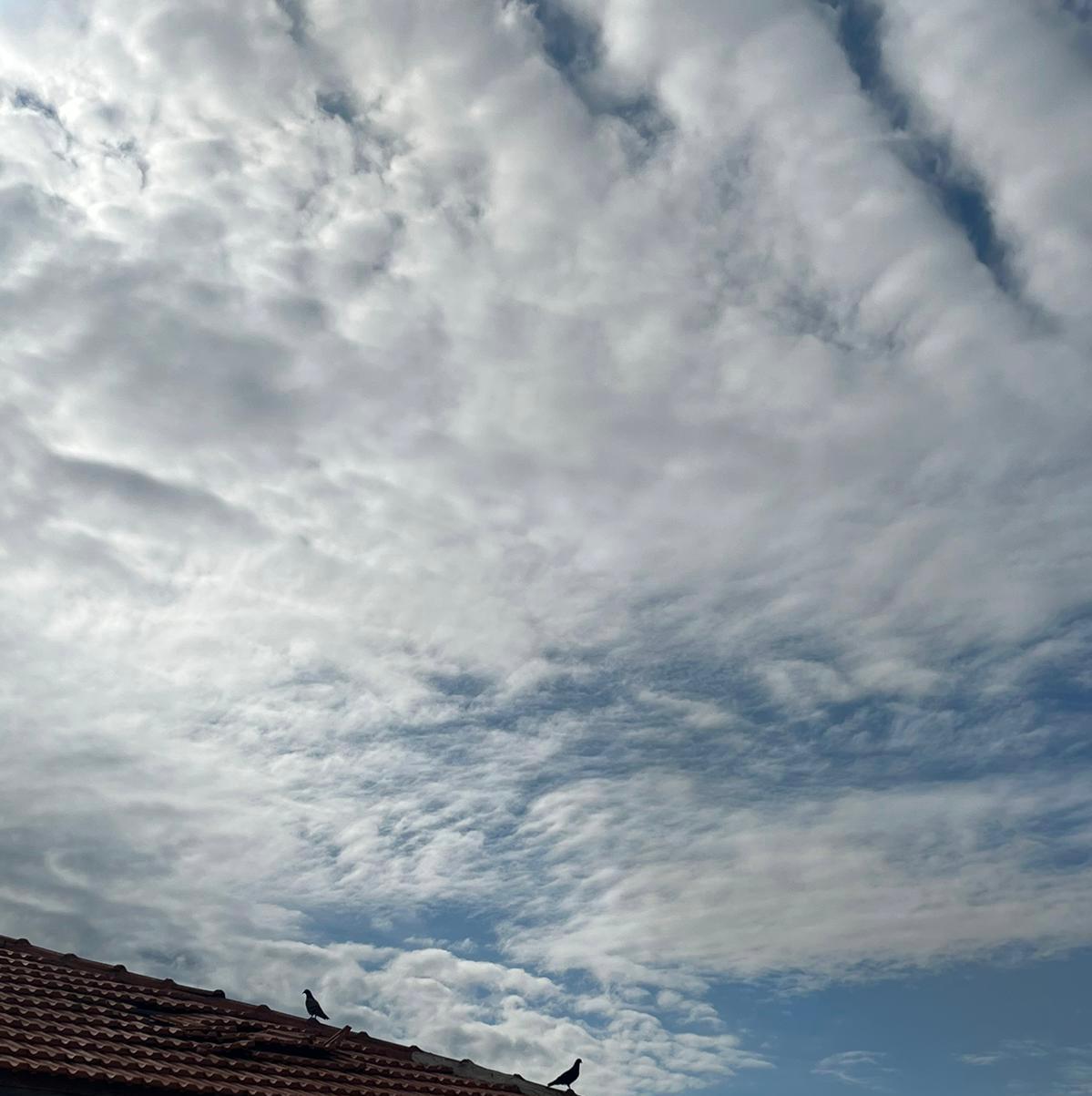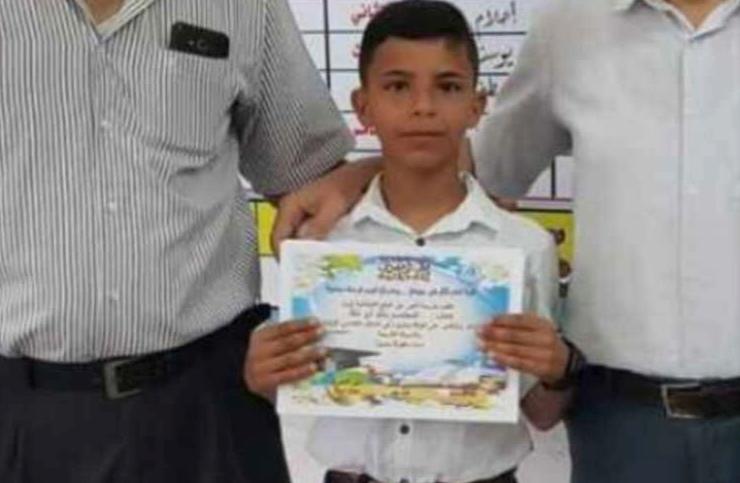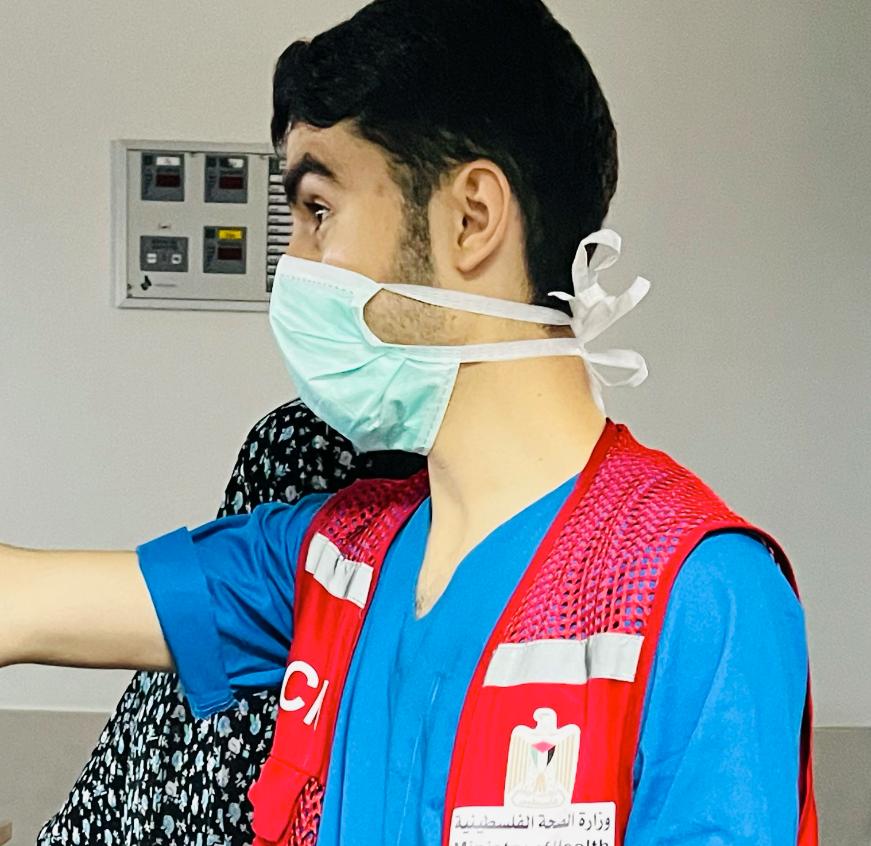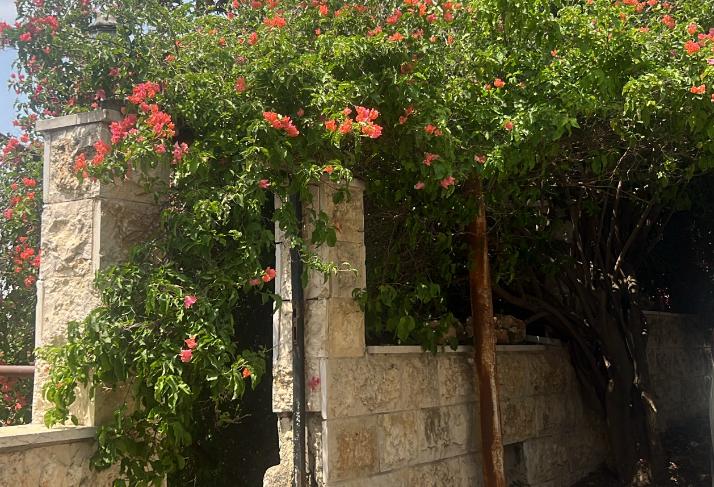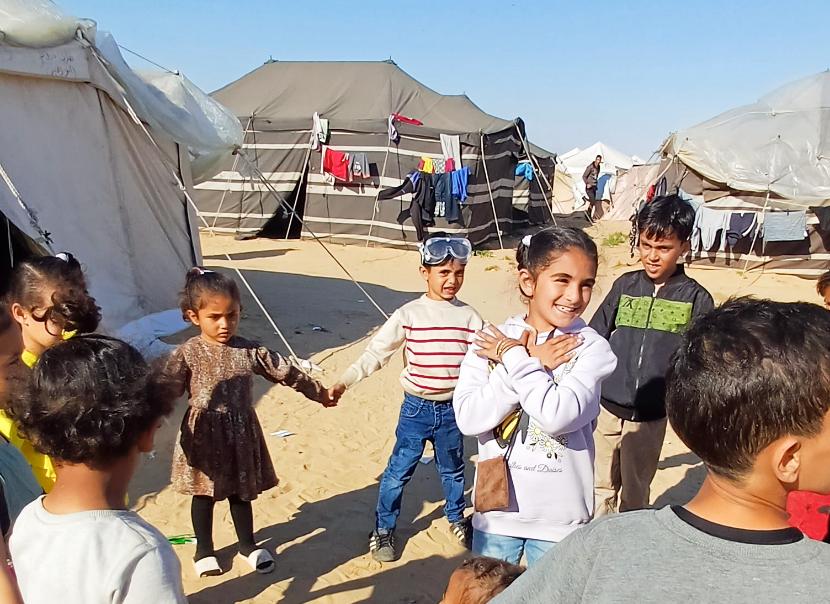
The long-awaited morning finally arrives on December 27, 2008. My father’s voice hums my song, which I have forced the whole house to memorize. I am very excited to perform in the show for which my friends and I in kindergarten have trained for days: “Ana wa ashaby shu helween” (my friends and I are so beautiful). My sister Laila is a year older than me, and together we complete the song: “benghany la falsteen benghanyleaha kteer kteer” (we sing for Palestine; we sing for it a lot). My father calls us, saying, “Let’s go; we’re running late. Put on your coats and hope it will not rain so we can celebrate outdoors.”
I remember that my teacher insisted that I wear a red dress for the show, and my parents and I struggle to find it.
As we leave the house, the atmosphere is festive, and our laughter echoes through the building. My family is delighted to see their little girl growing up, and soon I will follow my sister Laila to primary school.
God hears my prayers; the show begins. My friends and I gather, holding each other’s hands, and we begin to perform the dance moves for the song we have practiced, with great excitement and joy.
I finish my performance and quickly descend from the stage. I rush over to my parents, eager to ask them how it was.
“You were like a butterfly; bravo, my dear,” says my mother with a beaming smile. My father chuckles and adds, “That’s my daughter.” I settle down beside them, anticipation bubbling within me, hoping to receive my certificate and the gift I have been eagerly awaiting from my teacher.
Suddenly, a tremendous boom, like thunder, interrupts the celebration. I dash to my father, asking, “What is that sound, Daddy? Is it going to rain? I haven’t received my gift yet.” Dad looks into my eyes and remains silent.
Many questions race through my mind. I am a child who believes December is all about rain and celebration, as it is the rainy season at the end of the year, and I know people all over the world celebrate welcoming a new year.
The noise escalates, and chaos spreads everywhere. Parents are desperately trying to find their kids in the crowd of performers leaving the stage. I can only hear their cries while wondering, will I receive my certificate and the gift I have been waiting for, or not? The question lingers in my mind.
My father looks bewildered, saying, “No, my dear, it’s not raining. This is bombing from Israeli aircraft.” He clasps my hand tightly on one side while Laila clutches my other hand. Laila’s eyes are wide and nervously glancing around. We have no idea what is happening.
My mother begs us to hurry while walking. Although our home is just ten minutes away from the kindergarten, it feels like an eternity. It is taking so long that I am afraid we might not be able to reach our house. The sound of ambulances fills the air, and the warplanes seem to be chasing us from above.
When we reach our home, I feel a sense of safety (home is home). Yet I am still searching for answers. What is happening? My father does nothing but open the windows and hastily turn on the television. There, on the television screen, an answer to my questions unfolds before me: it is filled with images of children, men, and women covered in blood, and ambulances scattered everywhere. A bold headline beneath the pictures says, “Israel Declares War on the Gaza Strip.”
I look at my father with curious eyes and ask, “What does war mean, Daddy?” He embraces Laila and me, and in his eyes, I see the answer: war means destruction and death, and perhaps our turn will be next. I cannot move; my gaze is locked on the TV, which is displaying the horrifying footage of the attacks: images of missiles and bombs, and the devastation they caused as homes crumbled. The whole family gathers in front of the TV to follow the events.
Hours pass, and our house becomes crowded with relatives. I also ask my father why our house is full. Are we safe? Is our house secure? Days go by with fear and anticipation, wondering if it is our turn next or the turn of someone we love. We sleep in the same room, as every family in Gaza does during the conflict, to face whatever fate awaits (we sleep together to live together or possibly die together); we keep the windows open to avoid them shattering on us. While the entire world is celebrating the New Year, people in Gaza are counting hours to survive as days crawl slowly by.
One evening, my father asks my mother to prepare small towels with water and salt as a precaution against the white phosphorus bombs that Israel is about to use. “What do white phosphorus bombs mean?” I ask. My father replies, “It’s what we hear in the news that Israel threatens to use against Gazan civilians; they are dangerous and an internationally forbidden weapon.”
On January 18, 2009, we wake up late to the sound of the Imam’s call to prayer, my sister and I having slept in the comforting embraces of our parents, all sharing the same bed. Little do we know that it was the last night of the war in Gaza. In such uncertain times, nothing is stable here; life can flip in a second, and you can lose everything in an instant.
This is how my celebration turned into a nightmare: just hours after getting ready for my kindergarten graduation, the laughter turned to tears and screams. These memories from the first war I ever experienced are etched in my consciousness.
My family and I survived the 2008–2009 war, but many others did not. The war resulted in over 1,430 Palestinian martyrs, including more than 400 children and 240 women, along with over 5,400 injured. More than 10,000 homes were either completely or partially destroyed.

Fatima, the innocent child who was only 5 years old, ended kindergarten knowing what war means.
Now, Fatima has grown up and the war continues. I’m 19 years old. In my final year of high school, just before starting university, the 2021 conflict broke out. This delayed our exams; this war continues to cast its shadow over all stages of our lives.
The war has not ended since my birth. My family has survived seven aggressions since 2008, and I do not know if we will survive the next one. Each time, I cannot get accustomed to it; it is a nightmare that keeps growing within me, never ending, and every time it shatters a beautiful moment in our lives.
The fear of losing my loved ones continues to grow, but now the war comes without little Fatima’s many questions for her father. Now I understand what it means to have open windows, to sleep in one room, to be cramped in the house, and to see terror in my father’s eyes.
Gaza taught the little Fatima to appreciate life’s small blessings—the warmth of a hug and the sound of loved ones’ voices—as here life can turn upside down in a second and you can lose it in the blink of an eye.
Finally, Fatima realized that December is not just about rain; it can be a time of fear, destruction, and loss.

